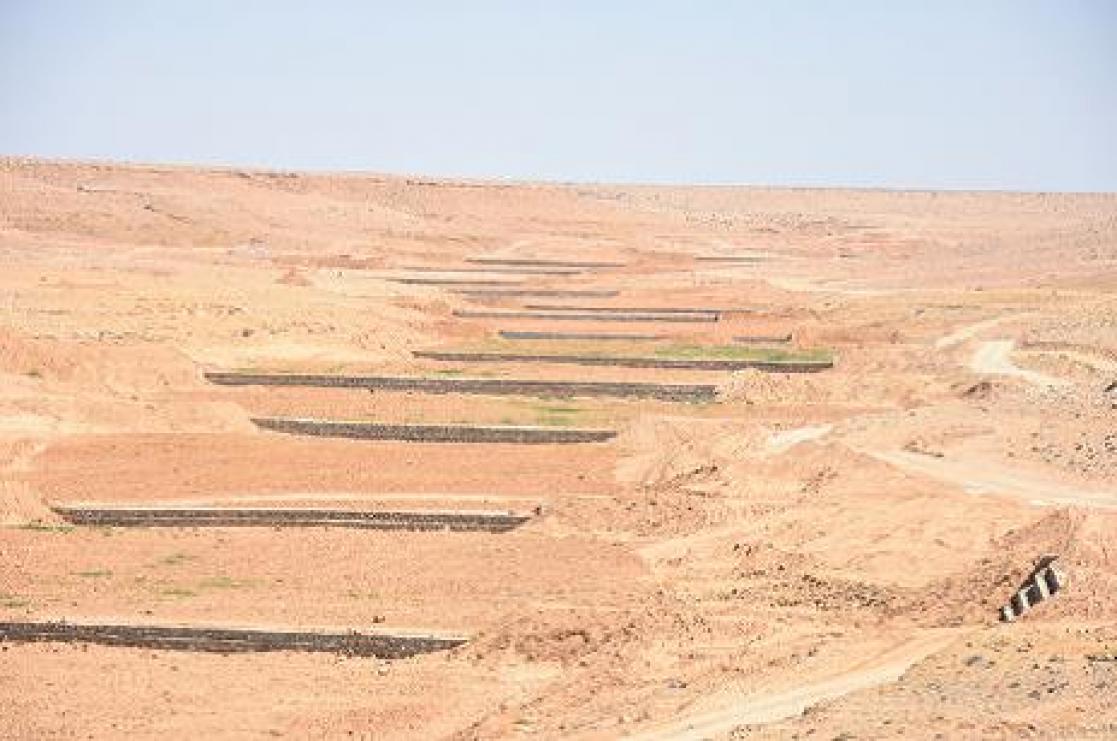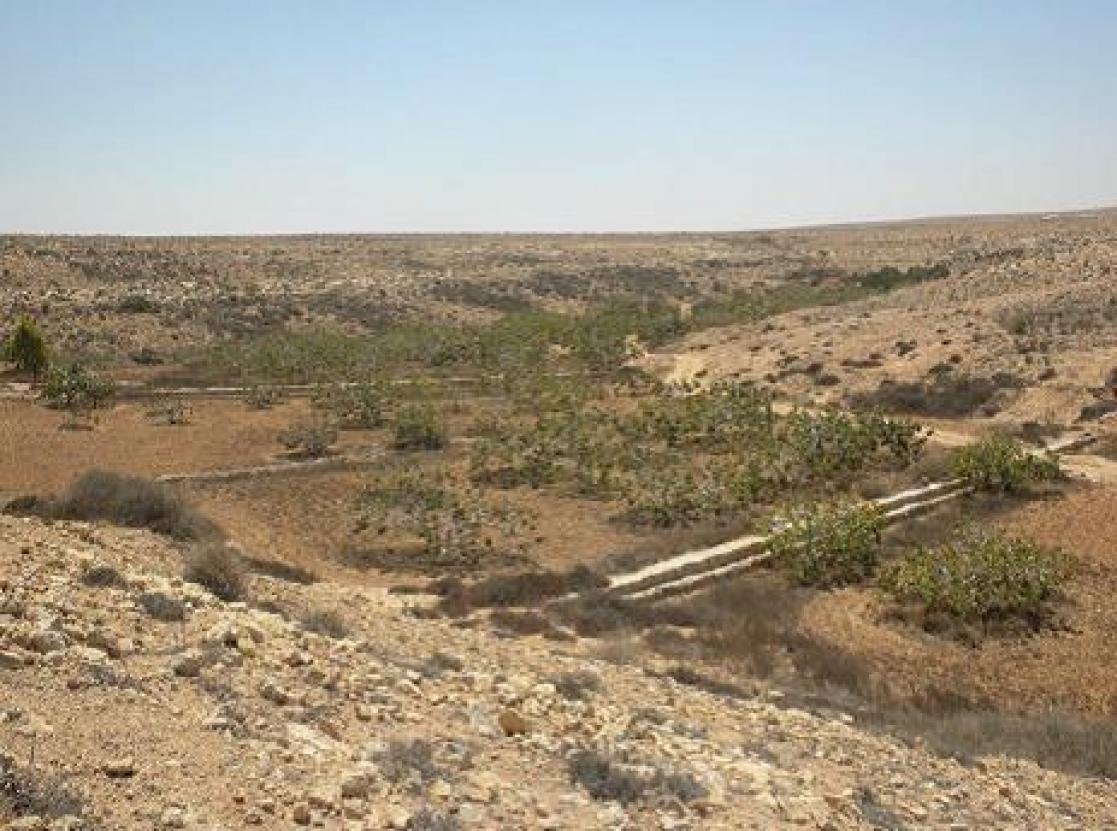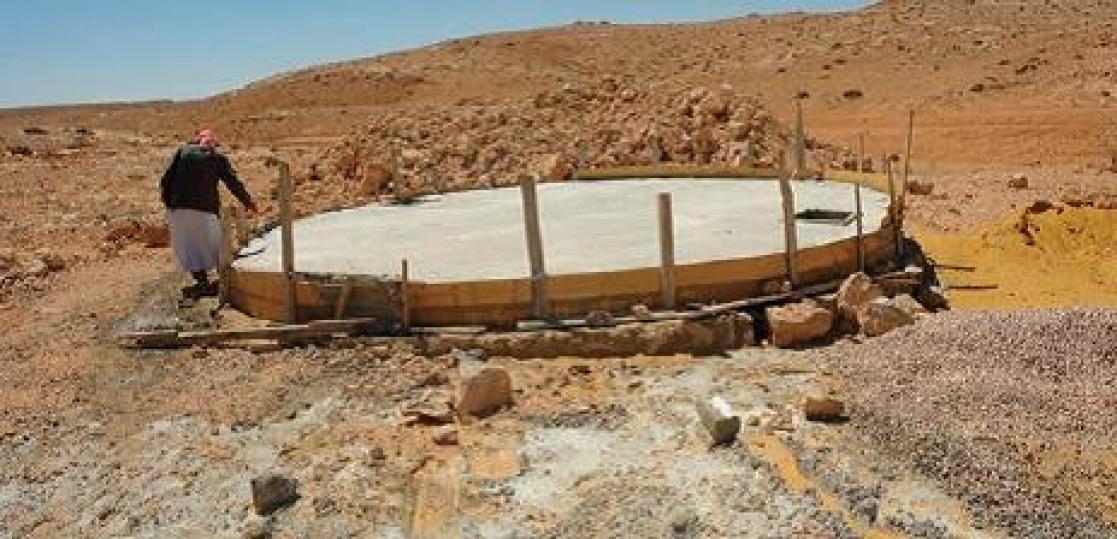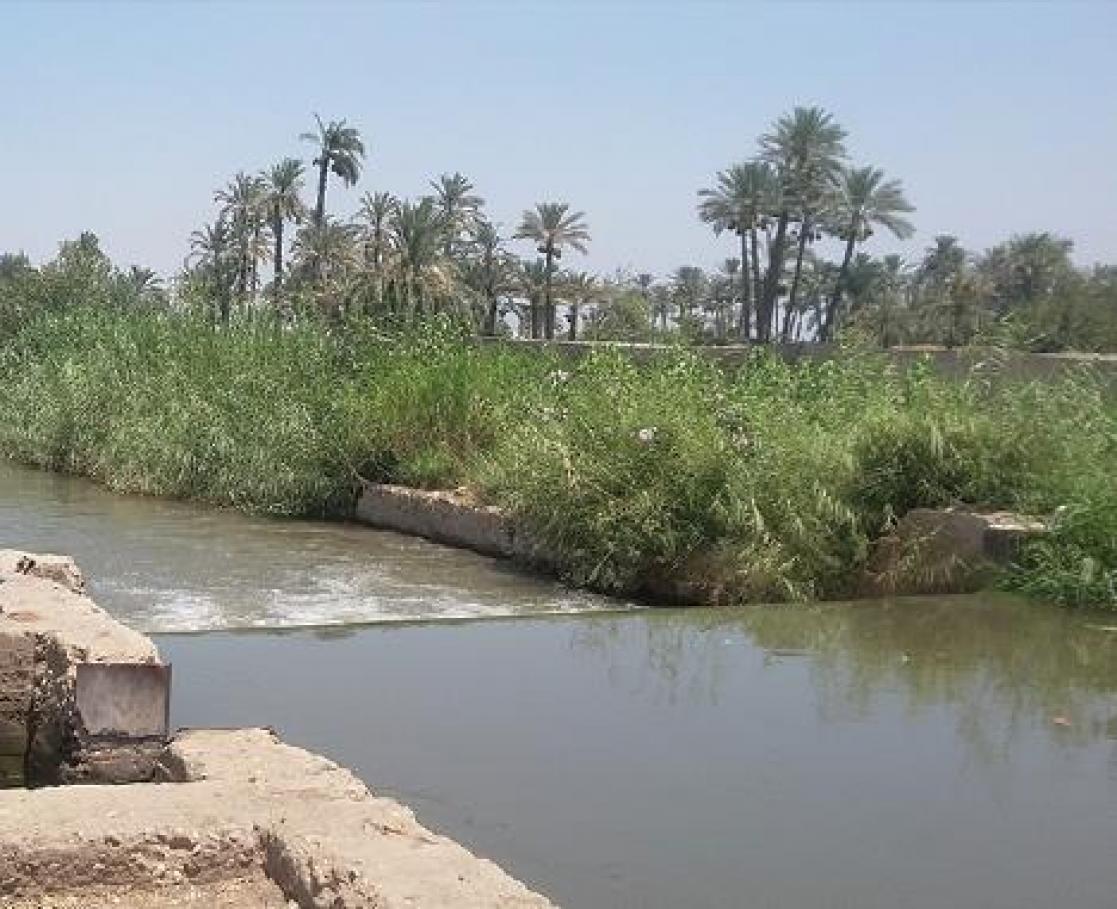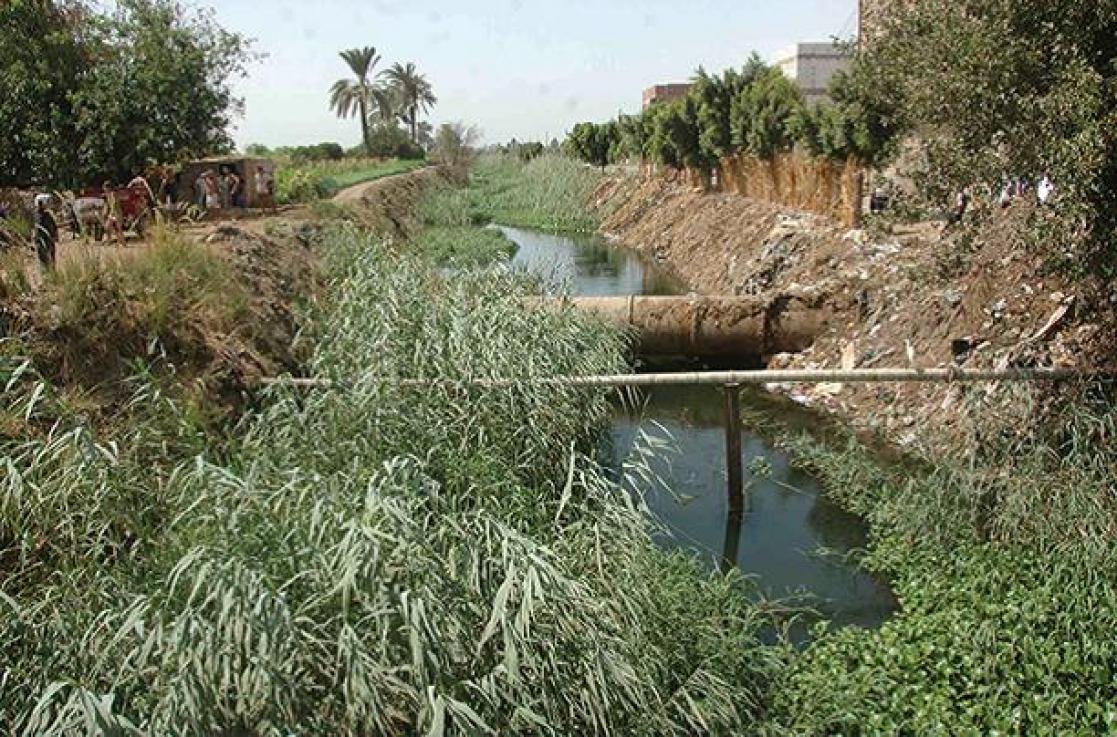EU Joint Rural Development Project
Context of the project:
Shortage of water is one of the major issues facing Egyptian Agriculture. The Egyptian strategy for using this limited resource is based on rationalizing water use.
Matruh Governorate is a dry land agro-pastoral zone suffering from water scarcity, affecting the food production and livestock wealth. The only source of water is the very limited seasonal rain (October – April). The need to collect and harvest the rain water is vital to guarantee food and livestock production as well as its utilisation for domestic use. This is achieved by developing wadis and constructing reservoirs. Wadis are basin formed by the rain water floods. Wadi development consists of levelled terraces along the run of the wadi which protects its sides, while retention dykes and spillways at terraces downstream are built for flood attenuation and to avoid soil erosion.
In Fayoum and Minia, the main issue is to reduce the amount of water losses during irrigation. To tackle this problem it is necessary to increase efforts to improve farm irrigation and drainage system. This will be achieved through the rehabilitation of irrigation and drainage network in selected areas, application of proper and efficient irrigation system, in addition to the promotion and establishment of Water Users Associations to take over operation and management of irrigation network.
Introduction of Good Agricultural Practices in all the project areas will promote Sustainable production, proper use of fertilizers and pesticides, adoption of quality control at post-harvest level to ensure food safety.
Objectives:
The project contributes to the sustainable increase of agricultural production and the improvement of poor rural families' livelihood in three Governorates (Marsa Matru, Fayoum and Minia).
Accomplishments:
The following results have already been reached:
In Marsa Matruh:
- 14 Km of wadis were developed with infrastructure to retain water, while an additional 20 Km are under development. Along these wadis, 26 cisterns (with a capacity of 150m3 each) have been built and additional 39 cisterns are under construction. This has permitted improved cultivation on 216 feddans.
- 575 water harvesting facilities (cisterns, roman cisterns, roman wells, reservoirs) for human and animal consumption were already constructed / rehabilitated. Altogether they can store 95,405 m3.
- Three grant contracts have been signed to assist farmers and breeders to improve their production practices.
In Fayoum and Minia:
-
The work for the rehabilitation of irrigation canals is about to start and will include rehabilitation of main canals irrigating a total of 4,986 feddans and rehabilitation of secondary canals (meskas) a total of 3,554 feddans. At the same time farmers cultivating this land will receive support to improve farm level irrigation system and soil productivity.
-
Four grants contracts have also been signed to support farmers in the two governorates to improve their production.
